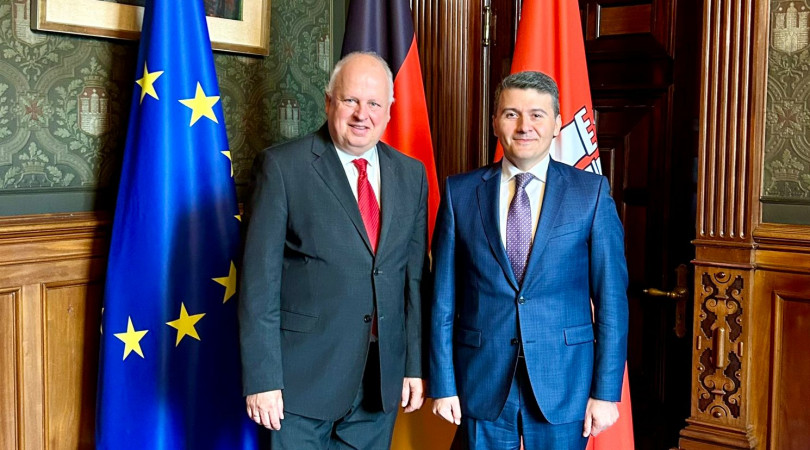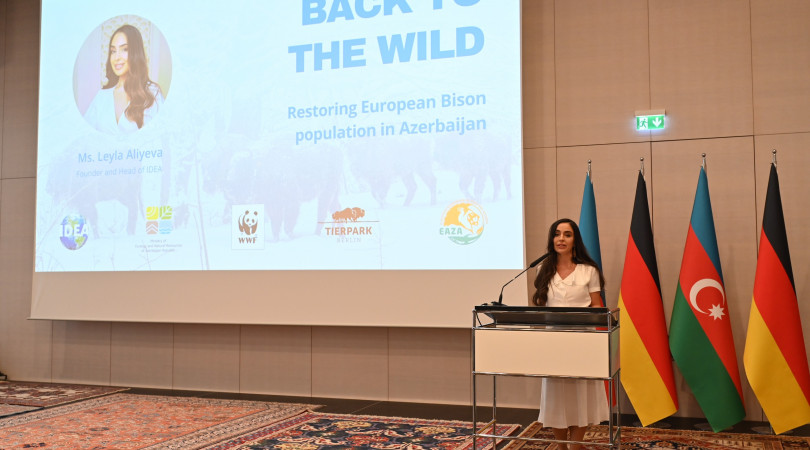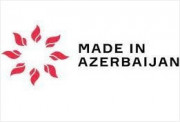THE STATEMENT of the Commissioner for Human Rights of the Republic of Azerbaijan (Ombudsman) on March 31 – a Day of Genocide of the Azerbaijanis
After the Republic of Azerbaijan regained its independence, a chance occurred to learn our history better, gradually all hidden facts were disclosed and the distorted events became clearly seen. The genocide acts which have been gradually committed against our people and that have not been yet recognized are one of such examples.
From the beginning of XIX c., thousands of Armenian families were moved from Iran and Turkey onto historical territories of Azerbaijan such as Karabakh, Nakhchivan, Zengezur, also Iravan and other provinces.
The purpose of genocide, ethnic cleansing and deportation policy of the Armenian nationalists and their supporters against the Azerbaijanis, lasted over two centuries, was banishing them from their historical native lands and establishing “Great Armenia” state on those territories.
The most horrible one of such tragedies against the Azerbaijanis is the genocide committed on March 31, 1918, and it differs for its severe atrocities. Thus, the Armenians masterly used the February and October Revolutions of 1917 in Russia and managed to realize their outrages claims under the bolsheviks’ flag.
Since March of 1918, thousands of the Azerbaijani civilians have been killed on the ground of their nationality; people were burned alive; rare historical monuments, schools, hospitals, mosques were ruined.
The massacres committed by the Armenian-Bolshevik forces in Baku gained mass scale on March 31 and on April 1-2, 1918, and innocent civilians were killed mercilessly. During that genocide, 30 000 persons in Baku and in surrounding villages have been brutally murdered on the ground of nationality. During that period, the Armenians scattered shelling many old buildings, including Ismailliyya building, which is one of the pearls of the world architecture; the minarets of Juma and Tazapir mosques were severely damaged; the corps of the people killed in Karvansaray were burned on place.
The acts of genocide of the Azerbaijanis were mainly committed in Baku, Shamakhi, Guba, Kurdamir, Salyan, Karabakh, Zangezur, Nakhchivan and Lankaran provinces with special cruelty. During March events, 75 villages of Shamakhi were totally destroyed, 7,000 persons were annihilated. Research documents in 7 Volumes and 925 pages about the acts of genocide committed in Shamakhi and in neighboring villages stored in the archives once more evidenced the large scale of the massacres. According to the historical sources, 2000 Armenian armed forces and 60 trucks of ammunition sent to Shamakhi in the middle of March is a proof of preparation to this massacre in advance.
In Guba province these bloody events also occurred in the same manner, the Armenian armed groups burned 122 villages, killed innocent people including women and children. About 40 villages were destroyed in Lankaran province, hundreds of innocent people were killed, and numerous houses were destructed and burned.
In general, in that period, hundreds of thousands of our compatriots were massacred in Azerbaijan. In spite of years passed those bloody events were not forgotten and they left indelible impressions in memory of our people.
This should be noted that by the Decree signed by President Heydar Aliyev “On the Genocide of the Azerbaijani people” dated March 26, 1998, provided political recognition to these events and for the first time was officially declared the fact of genocide against the Azerbaijanis committed by the Armenians. Besides, March 31 is annually commemorated as a Day of Genocide of the Azerbaijanis at the state level.
Within last period, there were recently found evidences ascertained mass slaughters of 1918 committed by the Armenian separatists in Guba province. Innumerable human bones found, are visual evidences of their savagery and vandalism during these slaughters. Guba Genocide Memorial Complex was created as evidence and in memory of savagely murder of dozen thousands of people in this region. The complex is visited by our citizens and foreign guests.
Under international law, as a grave international crime, genocide is included to such group of crimes as aggression against the international peace and security, crime against humanity, war crimes and international terrorism. The elements of the crime of genocide were determined by the Convention on the Prevention and Punishment of the Crime of Genocide adopted by the UN General Assembly Resolution No. 260 (III) dated December 9, 1948. According to the Convention, genocide is an act committed with intent to destroy, in whole or in part, a national, ethnic, religious, or racial group. Each of these elements of the crime against humanity, which are also envisaged in this international document, was committed by the Armenians against the Azerbaijanis during March events in 1918 and therefore, from the legal perspective, this should be recognized as genocide.
The history showed that the Armenian nationalists did not give up their notorious purposes, massacred civilians by cruel methods and falsified the history, converting facts to their own use to curtain the crime committed.
As a result of the next aggression policy started since 1988, Armenia occupied Nagorno-Karabakh which is an integral part of Azerbaijan, as well as seven surrounding rayons, thus 20 percent of the country territories were occupied, one million of Azerbaijanis became refugees and IDPs, their rights were grossly violated. In the course of this occupation, the Armenian nationalists and terrorists committed genocides in Khojaly city, Karkichahan, Malibeyli, Gushchular, Garadagli, Agdaban villages and in other settlements of Azerbaijan.
Although, the UN Security Council adopted four Resolutions on territorial integrity and unconditional liberation of the occupied territories of Azerbaijan, the UNGA adopted the Resolution titled “The Situation in the occupied territories of Azerbaijan” of March 14, 2008, the Parliamentary Assembly of Council of Europe (PACE) adopted a Resolution No. 1416 and a Recommendation No. 1690 confirming the occupation of the Azerbaijani territories by the Armenian armed forces and governing the Nagorno-Karabakh by separatists, Armenia still refuses to fulfill the requirements of these documents. While, in these Resolutions, Armenia was recognized as an aggressor and was demanded to withdraw its military forces from the occupied Azerbaijani territories and to create possibilities for one million Azerbaijani refugees and IDPs to return to their native lands.
Armenia, being accepted as a member to the Council of Europe, has undertaken several international obligations according to the Opinion No. 221 of the Parliamentary Assembly, such as to pursue efforts to settle the Nagorno-Karabakh conflict by only peaceful means; according to the principles of international law to settle international and local disputes also by peaceful means by resolutely rejecting any use of force and threatening against its neighbours. However, those obligations have not been fulfilled; the Armenian side regularly violates the ceasefire regime and creates obstacles to the peace in the region demonstrating unconstructive position.
Thus, since April 2, 2016, the groups of Armenian armed forces abruptly started intensive shootings from the occupied Azerbaijani territories, as well as from the territory of the Republic of Armenia on the territories of the Republic of Azerbaijan, numerous dwellings, where civilians lived, schools and other social objects along the frontline, also the positions of the Azerbaijani Armed Forces troops on the line of contact, by heavy artillery and big caliber weapons. As a result, civilians, including women and children were killed and severely injured. Thus, international legal documents, including the provisions of the Geneva Conventions were grossly violated as a result of these provocations. This was observed by the representatives of international organizations and international journalists visiting our country.
All these happen in XXI c. before the eyes of world community that reached the high level of cultural, economic development. We state with confidence that, as long as legal-political assessment is not given to acts of vandalism, separatism, nationalism and terrorism, all the humanity will be in danger.
The Azerbaijani side always tries for peaceful solution to the conflict. The President of the Republic of Azerbaijan, Ilham Aliyev underlines resolutely the necessity of this conflict resolution only in the frame of territorial integrity of the country, as well as emphasizes the necessity of withdrawal of occupant forces from the Azerbaijani territories.
The world community provides more support for the just position of Azerbaijan and it is interested in peaceful settlement to this conflict within the international legal norms. This should be noted that the US New York State Senate and New Jersey State General Assembly passed Resolutions recognizing March 31 as a Day of Genocide of the Azerbaijanis.
It is noteworthy that the Parliaments of fourteen States have already recognized Khojaly genocide committed by Armenians on February 26, 1992 from the perspective of the international legal norms. Moreover, legislative bodies of twenty one States of the USA have passed relevant Resolutions.
We once more resolutely declare that at the international level this genocide has not been yet given legal assessment. Requesting the world community and international organizations, we believe that the long-lasting Armenian aggression against Azerbaijan, mass human rights violations will be ended and the conflict will be solved by peaceful and reconciliation means.
We call international organizations to support the just position of Azerbaijan without double standards and we believe that justice will be restored soon, this violent crime committed against the humanity will be given international legal assessment as an act of genocide, perpetrators will be punished, the competent international organizations will impose sanctions on Armenia, severely violated rights of one million refugees and IDPs will be restored and captives and hostages will be released.
We hope all well-known international organizations and peacemakers will join efforts for the restoration of peace and security in Azerbaijan which is a land of tolerance, long lasting occupation policy against Azerbaijan will be stopped, the necessary condition will be achieved for sustainable development in our country and cooperation in the region. Real opportunities will be created for ensuring the universally recognized fundamental human rights and freedoms of each person without discrimination on any ground.
Elmira Suleymanova
The Commissioner for Human Rights
(Ombudsman)
of the Republic of Azerbaijan
17.03.2017

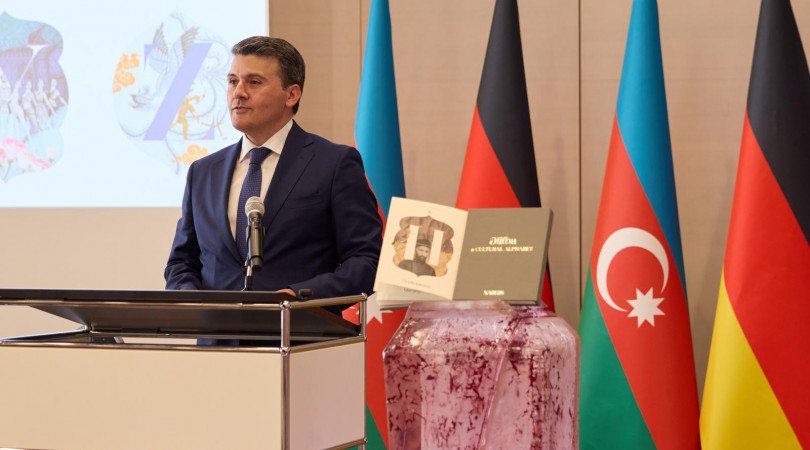
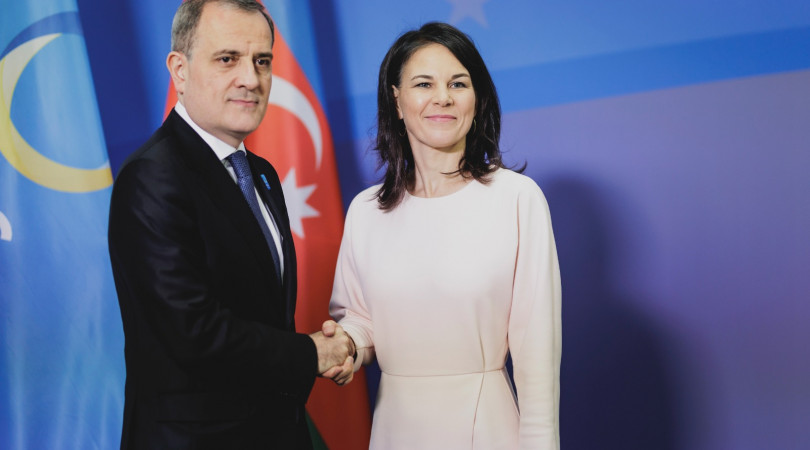
.jpeg)
